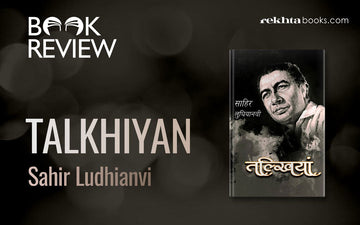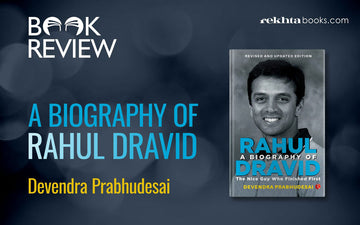Rumi: an Introduction:
In the realm of Sufism and mysticism, the name Jalaluddin Rumi, the 12th-century mystic and poet honoured as Mawlana, shines brightly. His literary works, primarily comprised of ghazals and rubaiyat, have found a significant place in Sufi literature worldwide. His most renowned work, "Masnavi-yi Maʿnavi" (Spiritual Couplets), gained global recognition in the 20th century, particularly following its translation into English in the 18th century. This elevated Rumi to the forefront of mysticism and spiritualism, impacting both the Western world and the Indian subcontinent. Rumi's mastery of the Persian, Arabic, and Turkish languages enriched both Turkish and Persian literatures, reflecting his profound influence in Iran and Turkey.
Early Life: Birth and Upbringing
Born Jalal-ad-Din Muhammad (also given Jalal-ad-Din Muhammad Balkhi) in 1207, in Balkh (present day Afghanistan), he hailed from a family of esteemed Islamic jurists, scholars, theologians and mystics. His father, Bahaʾal-Din Walad was an eminent was amongst the most renowned mystical theologians of his times.
Owing to political unrest and threats to the safety of his family, Bahaʾal-Din Walad migrated to present day Anatolia, then Rum (the term Rumi originated henceforth).
Meeting and Association with Tabrez: Rumi's Spiritual Awakening
Rumi's family was deeply involved in mysticism and religious studies, so he naturally grew up in that world. But it was when he met Shams of Tabrez that Rumi went through a profound spiritual transformation.
Tabrez, a Sufi mystic at heart and basket weaver by profession, was on a quest for a companion who could share his journey and match him intellectually. His search brought him to Rumi in Konya. When they crossed paths, a deep connection blossomed between them, woven with threads of mutual understanding, devotion to God, spirituality, and an earnest love and respect for each other.
Tabrez was a mentor figure for Rumi, guiding him on his path to devotion towards God, through the teachings of mysticism and Sufism. Rumi’s poetry and literary works found more depth, resonance with human emotions and a spiritual essence with regards to man’s quest in the search of divine love, in the company of Tabrez.
Rumi was so dedicated to Tabrez that he let go of his commitments to family, friends, students, and even the state. Rumi's distant behaviour concerned those around him, and many accused Tabrez of taking him away from his loved ones. Due to these allegations, Tabrez left Konya. However, Rumi couldn't cope without his mentor and called him back. Yet, upon Tabrez's return, the blame resurfaced. And so, one fine day, in the middle of a conversation with Rumi, Tabrez got up and left, never to be seen again.
Writings and Teachings
Rumi would write couplets and masnavi’s dedicated to the love he had for God, and for his beloved companion. His poetry consisted elements of Islamic teachings, history, spirituality and tales from Hadiths. However, Rumi was an ardent believer of the theory that one did not necessarily have to be a follower of Islam to find their way to God.
It was after Tabrez’s disappearance that Rumi’s poetry took a turn. His couplets and quatrains became more profound and filled with the throbbing of a heart robbed off of a companion. But, even in times of such personal dispair, Rumi’s poetry was surprisingly optimistic and hopeful, as he relied on his relationship with God to guide him onwards.
He came to the understanding that once fully devoted in love, an individual becomes an extension of their beloved altogether. After a futile search for Tabrez, Rumi accepted that he has not been separated from him at all, as in him breathes the soul of Tabrez, and thus, Rumi the the mystic poet began composing verse which he believed came from Shams.
The Book Set: A Glimpse Inside
The legacy of Rumi’s works continue to capture the hearts and minds of readers globally. Rekhta Books also proudly contributes to this world of love, mysticism, spirituality and divinity.
Presenting to you ‘Sufi Magic of Rumi’ a book set consisting of three books, each covering Rumi’s works on various themes. This book set is the perfect ensemble towards the exploration of Rumi’s divine thoughts and spiritual energy.
Be it a beginner wanting to enter the mystic realm through Rumi’s work, or a proficient learner already sunken deep in its divinity, the books in this collection will woe all. Captivating poems, quadrains and tales are ready to take you on a spiritual journey through a divine perspective, spiritual introspection and shades of humour.
The first book Rumi’s Little Book of Life: The Garden of the Soul, the Heart and the Spirit, by Mafi and Kolin is a compilation of selected poetic works of Rumi, revolving around the various aspects of human life. From teachings for the heart to be patient, to trying to encapsulating the divine charm of nature, this book from the set is a reader’s guide to explore the many phases of life through the lens of spirituality.
Take a look at this quadrain from the book:
Only ignorance keeps a bird encaged.
The Masters have fled from their cage
and have become guides, showing that
the only way out of ignorance is faith.
In these lines Rumi suggest that ignorance acts as a cage, limiting our spiritual freedom. The Masters, those who've broken free, become guides, showing that faith is the key to escaping ignorance.
At another instance, one may find Rumi in a direct conversation with God, reclaiming how every lost souls find solace in God’s light, and how God’s door never shuts for ones seeking him, even if they’re gone astray.
Your benevolence has no rival!
Every door is shut except Yours
so a stranger lost at night
finds no other door but Yours.
Rumi’s Little Book of Love and Laughter compiled by Coleman Barks is the perfect piece in this set to understand Rumi’s approach in the analysis of life. It can be observed that Rumi’s world-view reflects a cosmic journey where individuals, whether guided or misguided, partake in the union with God. To him what matters is the profound joy and poetic energy in this shared experience.
Through witty and humorous tales, Rumi delivers important lessons on how patience, endurance and trust in the plan of God is man’s path to unite with Him, and to be kinder and affectionate to one another.
In one instance narrated in the book titled ‘When a Madman Smiles at You’ Rumi tells the readers how even a fleeting connection with someone can be based on a shared similarity. He draws parallels from nature and religion, like the story of Adam, to underscore the importance of self-reflection. Rumi suggests that examining who gravitates toward us and who distances themselves reflects our true essence.
The third book is The Book of Rumi: 105 Stories and Fables, consisting of fables that narrate incidents about seeking love, spiritual guidance and companionship. Translated by Maryam Mafi, this book is divided into 6 Masnavi sections, are a testament to how much Mawlana Rumi valued the potency of stories to be the most effective way to pass on traditions, across political and religious boundaries, making his teachings suitable for everyone alike.
Some stories have been created by Rumi while others have been gathered by him from different sources. But despite their origins, all these fables and stories contribute towards Rumi’s lessons.
In a story, a learned man mocks the illiteracy of a poor boatman, only to meet a sad death due to his lack of swimming skills, while the boatman survives. Through this story, Rumi preaches that one may find themselves to be superior than others, but God has blessed everyone differently, and hence, these thoughts should not be acted upon.
Rumi's tales carry profound messages of kindness, spirituality, and faith. His legacy transcends geographical, linguistic, and religious boundaries. You can pick up any of his works and discover relevance in various aspects of life. If you're ready to explore the realms of mysticism, spirituality, and divine love, visit Rekhta Books and get this enchanting book set. It also makes a perfect gift for someone you'd love to introduce to the magic of Rumi and Sufism.
In a world where Rumi's words continue to resonate with universal themes of love, unity, and the divine, this book set provides a passport to an unforgettable journey. So, embark on this spiritual endeavour with this book set, and discover the wisdom that has touched countless hearts around the globe.










